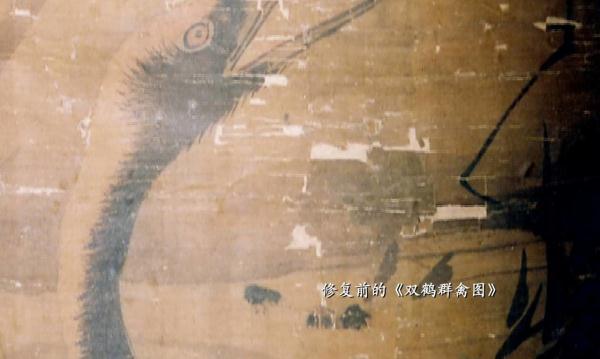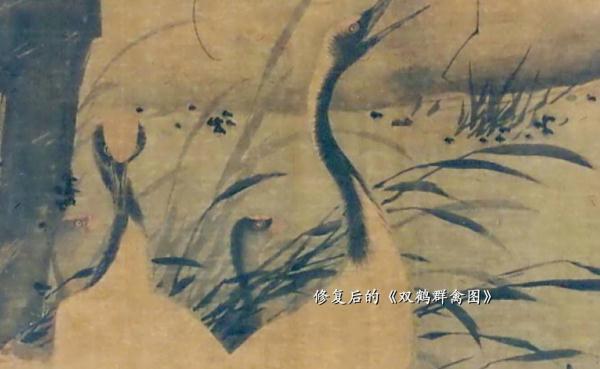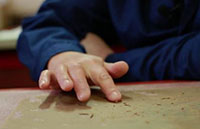Ancient painting restoration, a job that tests conscience
By Wu Yan (chinadaily.com.cn) Updated: 2016-05-05 08:17One of the most difficult ancient paintings she restored was a silk painting, called Two Cranes and a Flock of Birds, from Ming Dynasty (1368-1644). The time had made many silk threads embrittled and disjointed, leaving more than a thousand small holes on the silk painting.
 |
|
A decayed silk painting, called Two Cranes and a Flock of Birds, from Ming Dynasty (1368-1644). [A still image from China Central Television] |
Shan had to find and connect every broken thread. It took her six months to separate the painting and mend the holes.
There is another simpler way to restore silk painting. If a new dyed silk is stuck to the ancient silk painting without mending the holes, a painting will look same as the mended one in just two days.
But several hundred years later, the silk will decay and be mix with the ancient silk painting, which means the latter can never be renovated again. The ancient silk painting is destroyed then.
"If I use the simpler way of restoration, descendants will condemn us," said Shan.
 |
|
The silk painting Two Cranes and a Flock of Birds that has completed renovation. [A still image from China Central Television] |
"The job tests conscience," she said, "It is very difficult for a cultural relic to live today. We have to inherit it, pass it on and let our generation after generation see it. It is our duty."
A new piece of work is completely restored and is rolled out for washing away the dust. It is a painting from Qing Dynasty.
"It is beautiful," said Shan with a satisfied smile the moment it is put up. "Every time I complete a piece, I feel a sense of achievement."
- Streamlining bid to be redoubled to boost foreign investment, Li says
- 34 landslide bodies found as more storms expected
- Campaign aims to curb physical, verbal and cyberspace bullying
- 60% of career women say no to second child, report finds
- New rule targets military corruption
- Chinese abroad told to be on alert
- About 30 workers buried alive by landslide in east China
- Express delivery firms in Shenzhen promise to outdate tricycles
- China renews blue alert for rainstorm
- IMF: Economic restructuring 'desirable'








